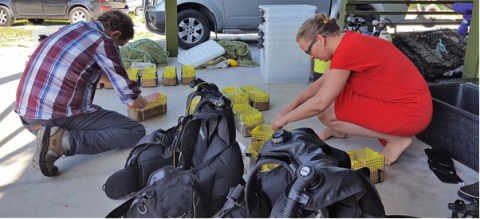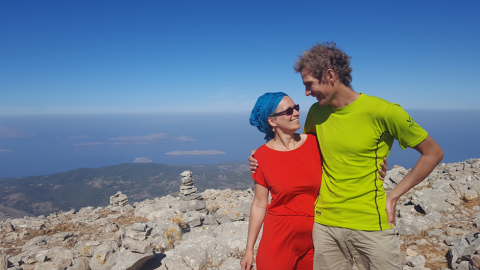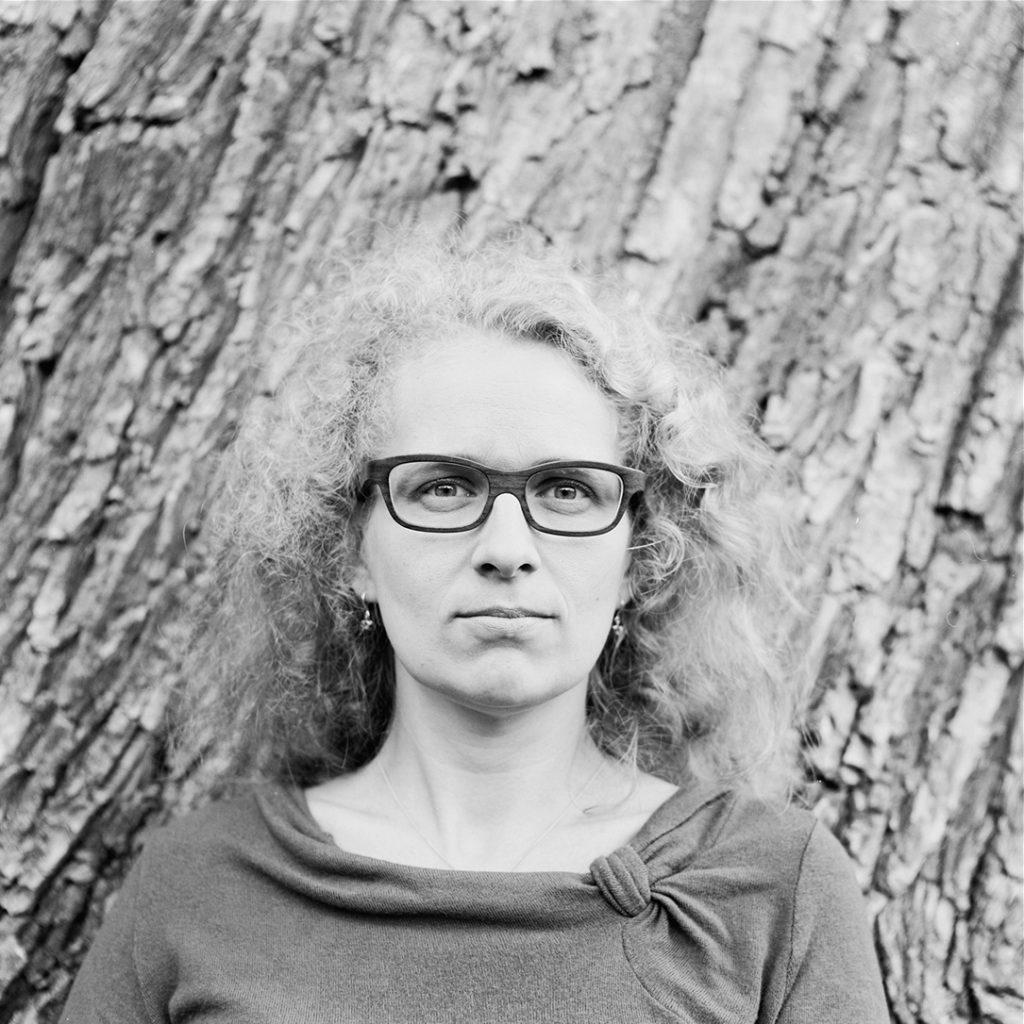What is the nature of your work?
I am a marine biologist, a benthologist and the centre of my research area is the northern communities, plants, animals, and everything connected with them in marine environments. Since in nature everything is interconnected, I have had the change to study sediments, chemistry, plankton communities and also fish. At the moment, a large portion of my work takes place in an office – writing reports, working through literature and databases, writing articles, and preparing new research projects. I do field studies in research stations a lesser extent. Due to the excellent internet and electronic channels, I am able to work at home or from a mobile office. Then again, practical field work serves as a good opportunity to get away from the office and delve intensively into something more specific.

Dr Helen Orav-Kotta and her colleague making preparations for the field work. Photo from Dr Orav-Kotta personal archive.
Career as a researcher.
I started at the Estonian Marine Institute 22 years ago when I was still studying on the third course of my environmental science and geoecology program at the university. As is common in our field, I started out as a laboratory technician and advanced to the position of a junior research fellow once my knowledge and expertise had grown to a sufficient level and from there on to being a research fellow and a senior research fellow.
Today, I find it extremely important to pass on my knowledge to biology teachers, university students, and students. For some reason, STEM subjects are considered to be harder than other subjects taught in schools. In order to produce new science-minded young people, these questions need answers already in general education schools and that is done by preparing teachers.
Please describe briefly your family commitments.
I think that families where both parents are researchers, function the same as all other families, where both parents work full-time. Children still need assistance in attending clubs and practises, sometimes with studying, preparations need to be made for the following work and school day, all family members need time for communication, and dinner also needs to be made.
If there are two parents in the family, then the responsibilities can be divided amongst themselves. A good support network in the form of grandparents or babysitters will be useful. Our older sons who are 13 and 15 years old have really been a great help in performing many tasks at home.

Dr Helen Orav-Kotta with her husband Dr Jonne Kotta. Photo from Dr Orav-Kotta personal archive.
How do you balance your work and family commitments?
When work is very intense, home activities and communication with family members are rather counterbalancing. Problems arise when work and family life are combined when in the face of increasing bureaucracy there is less time for substantive research and the number of words on paper becomes more important than the content behind the words. Research bureaucrats who would be prepared to do all this with enthusiasm are lacking in our current system. Time is the greatest resource.
During periods when children were little or needed greater contributions from their parents, are over, and now it is possible to set clear boundaries. Working hours are for work and time outside of it is meant to be free. Since I myself like very flexible working hours and working from home then setting those boundaries is always not so easy. All that needs to be done must get done.
What has helped you?
On the practical side, in-home matters, it has been a genuinely good support network, my husband, grandparents, and a babysitter.
What has hindered you?
If something is really desired then it is always achievable. I don’t think that male researchers have an advantage over female researchers. The successful combination of family, home and work depend, in particular, on the couple relationship. Our children have always been important to my husband, but at the same time, he is a very successful scientist. It seems to me that he has had to make much more compromises than me by joining his work and family.
After the birth of our children, I enjoyed being at home with them and I had no desire to work during that time. As science progresses so fast as do its methods and subjects, then coming back to work meant to be able to learn everything fast. It would be easier for parents to return to the labour market if part-time and low workload jobs were supported. In such a way people would not be left behind in their speciality.
What have been the most difficult moments in your career considering family and work-life balance?
In Estonia, there are very good opportunities for family planning – after the birth of a child, one parent can stay home for one and a half year. However, it is remunerated and the birth of children will not cause a significant reduction in income. On the other hand, this keeps mothers away from the labour market for a long time. Since part-time work is not allowed. As a result, their work-related competencies will deteriorate.
What is your experience of sharing family-care: (a) in your everyday life, (b) during field works, and (c) during secondments?
(a) My experience says that without family support and a support network, such work would not be possible. Fortunately, my employer has been very flexible in terms of working hours and has never asked to adhere to a strict schedule. This has made it possible for us to plan our time so that everything important always gets done.
(b) Whenever possible, we have always brought our children to fieldwork. Of course, this is not possible in cases of marine research of when research is done on a ship, but we have found plenty of activities during summer to be done on land or by the sea, which has permitted us to bring our children with us. Now, our older sons are 13 and 15 years old and they also contribute. Our older child is also interested in exploring marine biology or science in the future. The inclusion of children has been the only solution for both parents to work without being excluded from each other. Certainly, it has also taught the children work habits and aroused interest in the natural environment. While doing field work, the children have had more opportunities to be outside in nature than at home. In today’s IT-society, that can also be very valuable.
(c) Again, a good support network. Or a need for it to be organized so that the whole family can be together.
